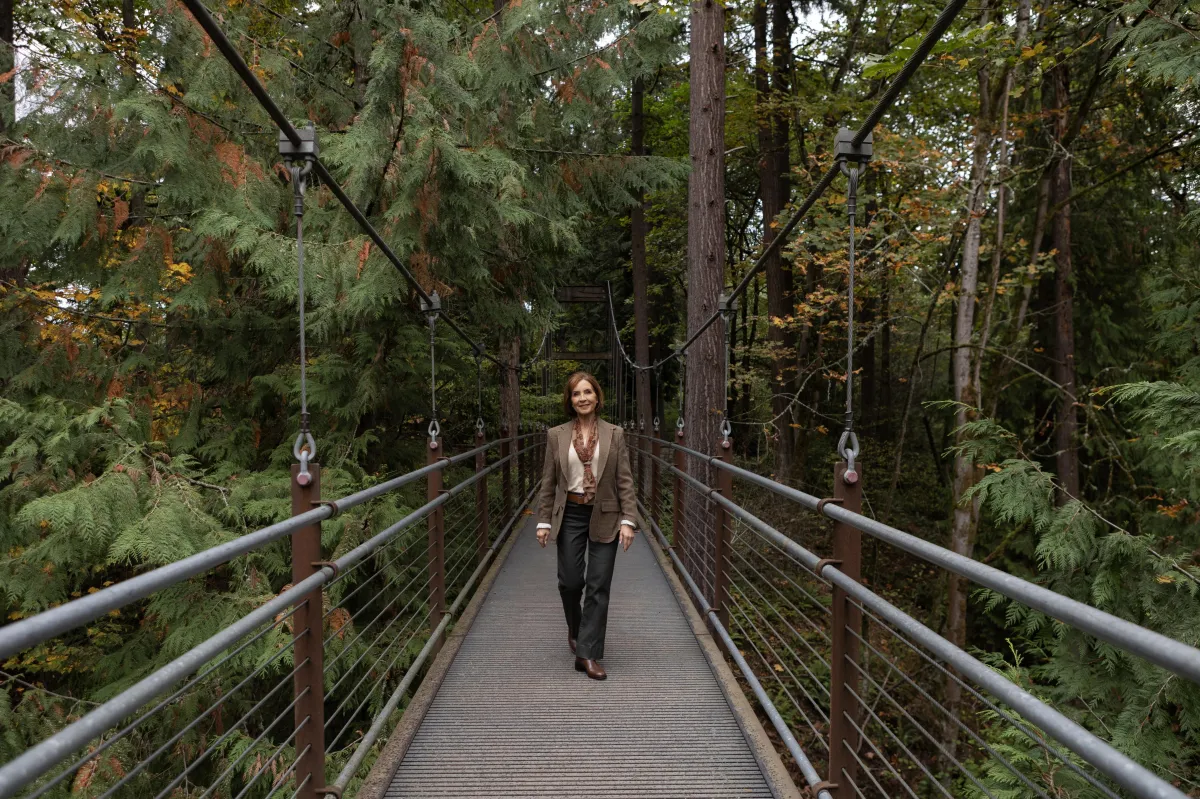
Midlife Transitions
Midlife Transitions: The Questions We Don’t Ask Out Loud
In early September, I started a project that quickly became larger than life. My goal was to interview 20 women between 50–70(+/–) and ask what’s on their minds right now. What feels most fulfilling? Which fears, doubts, and worries are hovering? How do they believe others see them at this age—and how do they see themselves? If they could change the narrative about women in midlife and beyond, what would it be?
I ended up speaking with far more than 20 women, from all walks of life. Some are still leading high-pressure teams; others paused careers to raise families. I heard from women in long marriages—some deeply fulfilling, some quietly strained. From gray divorce. From widows and women who never married, and those hoping to find love again. From caregivers balancing medication lists with midnight worries about adult children. From former stay-at-home moms wondering how to start over at 60, and from those wading through menopause brain fog while trying to remember what they walked into the room to get.
What I received were real conversations—truth-telling that felt long overdue.
Again and again, I heard a version of the same sentence: “I’m carrying so much, and somehow I feel overlooked.” Not just tired, but the kind of tired that comes from keeping a household running—tracking birthdays, passwords, prescriptions, travel plans, plumbing repairs—while also navigating deadlines, meetings, budgets, and the quiet project of holding everyone’s feelings. The invisible load has weight.
I felt like I’d been given a window into their hearts—women ready to set down frustrations they rarely have a place to say out loud.
Self-care came and went in these conversations, not as bubble baths but as a question of place and worth. One woman said, “We don’t give ourselves permission to create white space in our lives.” Not an hour gifted by a cancelled meeting—white space on purpose. The kind you can breathe in, create in, find peace in.
Another asked, “Is retirement the goal?” For many, it isn’t. What they want isn’t an ending—it’s a better fit, or my personal favorite, “rewirement,” as another woman put it. Less proving. More meaning. Work that aligns. Purpose after retirement that doesn’t require becoming a different person. A day with room for a walk, a real laugh, and a relaxing meal not eaten standing up or sitting at a desk.
Connection rose up in nearly every conversation—real, authentic, steady connection with other women who have stepped out of old personas and want to feel seen, heard, and appreciated. One woman shared, “I’m tired of being a lady at a luncheon—you sit in a ballroom with 500 other people, eat a dried-up chicken part, barely connect with another soul, then they ask you for money and send you on your way.” I hadn’t thought of it that way, but it landed.
Calendars can be packed while hearts feel empty. Group texts can hum all day and still leave you hungry for one honest conversation. Midlife friendships that once lived in carpool lines or business lunches now require intention. Loneliness can catch you off guard—tears threatening to spill on the drive to the grocery store. Feeling invisible at work or in marriage, even when you’re the one holding everything together.
Health sat alongside connection as a primary thread. I heard the same questions more than once: “What if something happens to me?” “Will I have enough money?” “Who will take care of me?” Beneath them was a very human hope: to stay strong and independent long enough to enjoy what’s been built.
Woven through the health conversation was menopause—time spent navigating emotional swings, hormones, doctor visits, flashes of heat out of nowhere, and the fog that drifts in like a low cloud. The thermostat with a mind of its own; sleep that forgets to show up; focus that slides off the page; bodies changing. It can make even the most capable women question themselves. It also lowers the tolerance for pretending and there’s a quiet relief in that.
Money surfaced often: the cost of care for aging parents, whether there’s enough saved to live on for 30 more years, and how to make sound choices now. There was so much here it could be its own story.
Adult children and aging parents created a new version of the sandwich generation. Many who imagined this season would include travel, new adventures, and rediscovering old loves now spend hours coordinating appointments, managing memory and mobility challenges and handling estates—often while still working. Another layer of pressure.
Marriage and partnership brought their own mix. A few felt fulfilled; many did not. Some are already divorced after decades and wondering what’s next. Others fantasize about it. Others are simply okay with things being okay. A common story: after retirement, she’s ready to put on her adventure hat and see the places she’s dreamed of; he’s content with TV, golf seven days a week or a quiet routine at the vacation home. Not exactly the shared dream.
As a coach, I want to understand what genuinely helps women through these transitions with as much ease, compassion and guidance as possible. My life experience and training have given me tools; clarity about the true need gives those tools direction.
We’re writing a quieter, truer narrative of midlife—one that centers meaning, connection, and a body that’s allowed to be human. Different stories, same heartbeat. I’ll let that heartbeat set the pace for what comes next.
With love and light,
Michele

